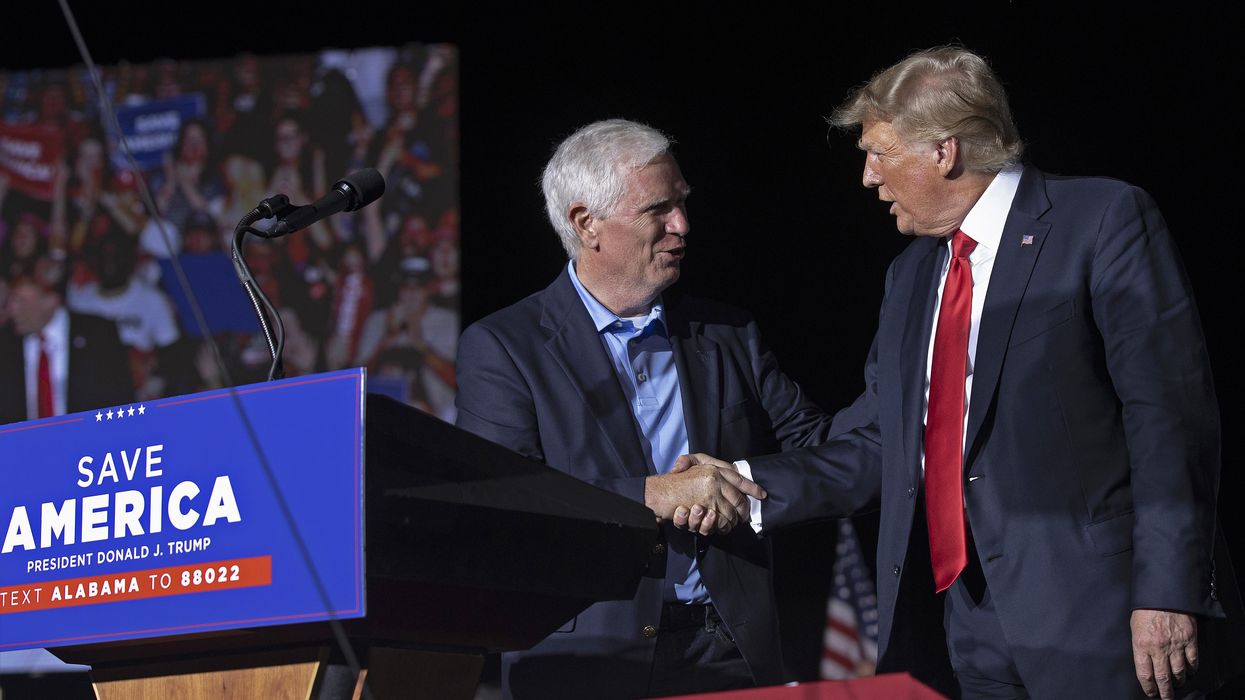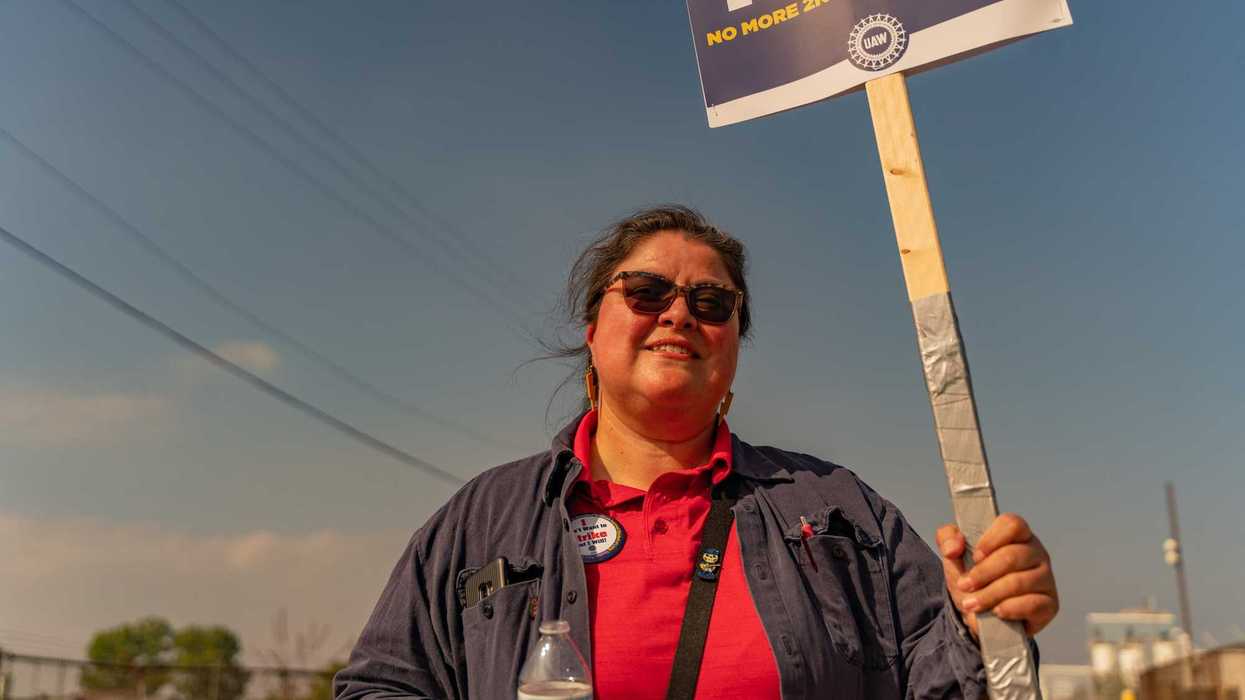On Tuesday, primary voters in four states – Alabama, Arkansas, Georgia and Texas – will choose their nominees for various offices.
Many of the storylines from the races in these states revolve around the influence of former President Donald Trump, as candidates with his endorsement vie for the Republican nomination. And the elections in Texas are a bit different: Voters initially cast ballots in the Lone State State on March 1, but candidates are participating in a runoff for contests in which no one received more than 50 percent of the vote.
All four of these states have open primaries, meaning any voter can cast a ballot in the nominating contests. Alabama, Arkansas and Georgia will all hold any necessary runoffs on June 21.
With states altering election laws to either increase or limit access to voting in response to the Covid-19 pandemic and unproven allegations of election fraud, The Fulcrum has been analyzing the changes. Here’s a review of the laws in each state holding primaries Tuesday.
Alabama
Alabama’s most notable race is the contest to succeed retiring Republican Sen. Richard Shelby. A former Shelby aide, Katie Britt, has a narrow lead over Rep. Mo Brooks and Army veteran Mike Durant in the race for the GOP nomination. Brooks had been endorsed by Trump, who later rescinded his backing. Republican Gov. Kay Ivey is also on the ballot again. Republicans also have a high-profile nominating contest to replace Brooks in the House.
A runoff seems to be the likely scenario in the Senate race and could happen in the gubernatorial contest as well. The primary victors are virtually assured of winning in November.
While Alabama allowed absentee and early in-person voting in the 2020 election in response to the pandemic, the state made neither policy permanent. An excuse is usually required to vote by mail, but the state expanded its list of acceptable situations in 2019, alongside requirements for absentee voters to include a copy of their photo identification with their application and have their completed ballot postmarked no later than Election Day and received no later than a week after the election.
In 2021, the state introduced rules that extended the time voters have to return absentee ballot applications and the time election officials have to process those ballots.
The state banned voting outside and curbside voting in the name of election security last year, though critics have said the rule will make it more difficult for individuals with disabilities to cast ballots.
Alabama has also added new election crimes in recent years, including a law that prohibits individuals from revealing the content of another voter’s ballot — such as by taking a photograph — and one that prevents residents of Alabama from voting in another state.
The state created a new misdemeanor this year, prohibiting election officials from using private funding for election administration, voter education, and voter outreach.
Read more about changes in Alabama.
Arkansas
Sarah Huckabee Sanders, one of Trump’s White House press secretaries, is the leading candidate in the most prominent race in Arkansas: the contest to be the Republican nominee for governor. And Sen. John Boozman seems likely to win reelection, but he may first have to go through a runoff.
Lawmakers have not introduced or passed any election legislation this year, according to the Voting Rights Lab. But the state has enacted some measures to remove barriers to voting and other to restrict that access after Trump beat President Biden there by almost 28 points in 2020.
In 2019, the state allowed voter identification to be presented in a digital format. The General Assembly also extended absentee voting to active duty members of the Arkansas National Guard and passed a law to require audits of electronically counted votes.
The state passed more laws in 2021. One mandated voters provide an ID by noon on the Monday following the election as the only acceptable method to verify one’s identity. Voters with religious objections would be allowed to receive a driver’s license or identification card without a picture.
Another law dictates that election officials cannot distribute unsolicited mail ballot applications or ballots to voters. The state moved the deadline to apply for those ballots from the day before Election Day to the Friday before.
Read more about changes in Arkansas.
Georgia
Republican voters will choose whether Gov. Brian Kemp gets to face Democrat Stacey Abrams, whom he narrowly defeated in 2018, as he seeks reelection. Former President Donald Trump endorsed Kemp’s primary opponent, former Sen. David Perdue, following Kemp’s refusal to overturn Georgia’s 2020 presidential election results. The other high-profile race in Georgia features former Heisman Trophy-winner Herschel Walker, who is seeking the Republican nomination for Senate. The victor will face incumbent Democrat Raphael Warnock.
While the state has traditionally supported Republicans, Georgia flipped blue in 2020 for the first time since Bill Clinton won the state in 1992.
In 2021, Georgia passed a GOP-backed, wide-ranging bill that received national attention for its efforts to tighten access to voting, including mail-in and in-person options.
Under the omnibus bill, voters are required to provide their driver’s license or state identification number on their mail-in ballot application and completed ballot. Election officials cannot mail absentee ballots to those who did not request them.
The absentee ballot application period was cut from six months to less than three before an election, and officials can only issue those ballots until 29 to 25 days before an election (compared to 49 to 45 days before an election previously).
In terms of in-person voting, the law prohibits mobile voting centers unless the governor declares a state of emergency, and polling location hours cannot be extended without a superior court’s order. It also limits early in-person voting availability.
Under the new law, it is punishable as a misdemeanor to offer “gifts” — including food and drink — at a polling place, and as a felony to watch a person cast their ballot unless the viewer is an authorized assistant or minor.
The bill also authorized Georgia’s attorney general to open a hotline for anonymous tips of illegal election activities.
This year, Georgia has passed one election-related bill, according to the Voting Rights Lab, that grants the Georgia Bureau of Investigations the authority to pursue claims of election fraud allegations.
Read more about changes in Georgia.
Texas
Texas
In Texas, some races were left undecided after the March 1 primaries, including the Republican nomination for attorney general and the Democratic nomination to represent the 28th district in the U.S. House.
While lawmakers have enacted some laws to increase access to voting since 2019, such as authorizing the secretary of state to maintain an online tracking system for voters to check the status of their ballots and making interpreters available at in-person polling locations, some laws tightened voting rules.
A month before the 2020 election, Gov. Greg Abbott issued an order limiting absentee ballot drop-off locations to just one per county. In 2021, the state limited the excuses available for someone to use an absentee ballot.
Texas hasn’t introduced or passed any legislation regarding voting and election administration in 2022, according to the Voting Rights Lab.



















Why does the Trump family always get a pass?